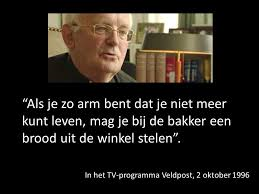‘Do you ever buy things from those stalls along the road?’
My friend nods enthusiastically. ‘All the time! Vegetables, fruit, honey, eggs, that kind of stuff,’ she says. ‘Fresh and at very good prices... You know, one of those stalls recently put up a sign that says Not paying equals stealing.’ She sounds indignant now. ‘I can't believe people steal even this!’
Not long after, I pass a stall selling fresh onions, garlic and snow peas. I rummage through my car to find €1.50. With the money in my hand, I walk to the stall and happen to run into its owner.
‘Here's the money. I'd like a bunch of onions and a tray of snow peas, please. Is your vegetable garden doing well?’ I love to chat with people every now and then.
‘It's doing fine. The sun is shining down on it. I empty a watering can on it occasionally. All good.
Let me tell you about this morning though. Something really remarkable happened.’ He's watching to see whether he has my full attention.
He does, I'm curious. ‘Tell me, what happened?’ I ask.
‘A man came over to bring me a Euro. He told me that the change I gave him yesterday was one Euro too much. See, now that's an honest man. Very extraordinary, don't you think ma’am?’
‘I don't think it's extra-ordinary, it's just ordinary.’
‘Excuse me?’
‘You think it's special because you are astonished that someone is actually honest.’
The man hesitates for a moment, then slowly nods yes.
‘Don't you think that stealing should be extraordinary?’
‘Well yes, if you put it that way.’
Back in my car and on my way home with my dog, the onions and the snow peas, my thoughts drift to Bishop Muskens of the Diocese of Breda in the Netherlands. Years ago, there was a fierce debate on the question whether a poor person should be allowed to steal a loaf of bread. Yes, said Muskens.

In abstracto the right of a person to survive outweighs the right of a shopkeeper to be paid for his goods.
In concreto, however, it's not that clear-cut. Couldn't the poor person find food in a different way? Was there no shelter where he or she could eat? If not, does this mean this person is free to go out stealing tomorrow again? And the day after that? Are all poor people allowed to do this? What does that mean for the survival of the shopkeeper?
Of course, the shopkeeper will live, even if some of the bread is stolen or given away. Loaves of bread are not unique items after all, and they don't cost that much.
It was a very different story at the Geldrop Castle, near Eindhoven, where our bronze sculptures were part of an exhibition – accompanied by a catalogue in which visitors could find the price of any art they liked.
When we came by after a few weeks to see how everything was going, the concierge of the castle happily met us at the door: ‘You have sold well, as much as six sculptures!’
Indeed, five bronzes by Marcus Ravenswaaij and one of mine were carrying red stickers. Put there by one and the same person, it turned out. When I called him, he sounded confused.
‘I bought sculptures? What do you mean? I didn't buy anything. I just stuck those red stickers on the sculptures I liked best.’

